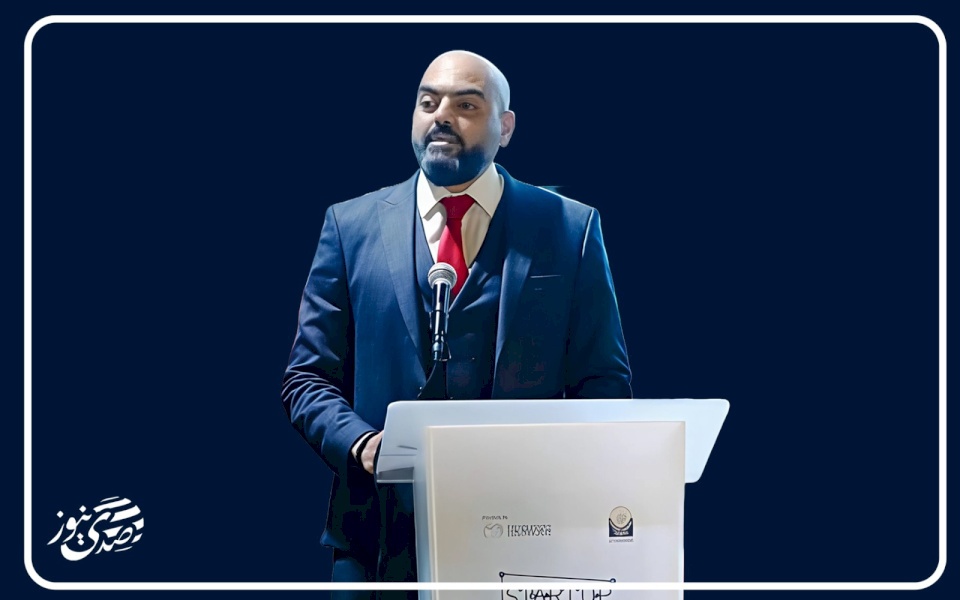
Trump... From Bombing Qatar to the Assassination of Kirk
What has happened in recent days places the world before a politically and militarily dangerous scene, led by current U.S. President Donald Trump with his reckless policies. The bombing of Qatar was not just a passing Israeli strike, but a strategic decision that reflects a declared American tendency to use naked power to re-establish American prestige in the region. Meanwhile, within the U.S., the assassination of young conservative Charlie Kirk reveals the other side of this policy, where blood is invested as a tool in internal conflict just as it is abroad.
The bombing of Qatar, a U.S. ally, sends a resounding message that no one in the region is immune from punishment if they try to step outside established lines or adopt stances supportive of the Palestinians. Qatar, hosting major U.S. military bases and being an economic and diplomatic partner to Washington, has found that this does not provide it a protective umbrella if its policies conflict with the common American-Israeli vision. This bombing could not have occurred without a direct green light from Trump, who sees igniting fires in the region as serving his strategic goals.
At the same time, the internal U.S. landscape trembled with the crime of the assassination of Charlie Kirk, the young man who represented a rising voice for the new generation of conservatives. The sniper's bullet that pierced his neck in front of his audience at Utah Valley University was not an isolated incident, but a reflection of the climate of incitement and division that Trump himself fuels. Ironically, the president hastily sought to capitalize on Kirk's blood, announcing from within the Pentagon the awarding of the 'Presidential Medal of Freedom' posthumously, in a scene that employs blood to cement his image as an indispensable leader.
Bringing these two events under the roof of Trump's policy is not fabrication. The man who encouraged the militarization of foreign policy is the same one who fed internal division, making violence a legitimate tool for achieving goals. The bombing of Qatar sends a message abroad that Washington will punish any party that dares to show solidarity with Palestine, even if it is an ally. The assassination of Kirk sends a message domestically that the conflict between the right and the left will not stop at the bounds of debates, but may reach bloodshed in public squares.
Trump does not see blood as a catastrophe, but as an opportunity. Abroad, Arab and Islamic blood justifies further intervention and dominance, and domestically, the blood of conservatives is used to rally electoral bases and solidify the image of a president who stands firm against 'liberal anarchists.' In this logic, Trump becomes the real link between the bombing of Qatar and the assassination of Kirk, as he created the environment that produced both crimes, and he is the one who directly benefited from them politically.
The most dangerous message here is that the world is faced with an American president who does not hesitate to use killing tools, whether through planes and missiles in the Middle East or through incendiary rhetoric that ignites violence in American universities. For Trump, blood is merely a means to reshape the political scene in his favor, both at home and abroad.
As for the Arabs, the bombing of Qatar presents them all with a shocking truth: there is no protection from Washington and no immunity through alliances. Israel strikes wherever it pleases with a green light from the White House, while the Arab world is content with statements. In America itself, where democracy is supposed to be a model, a young man falls victim to a political bullet, while the president applauds the scene and turns it into an electoral honor.
We are at a critical and dangerous moment: Trump, through his policies, connects the blood spilled in the Gulf with the blood spilled in Utah. If the world does not recognize the gravity of this phase, what is to come will be more violent, whether in the Arab region which may witness more capitals under bombardment, or within the American interior which may slip towards a political civil war.
Trump today is not just a president; he is a bloody project that transcends borders, using killing as a tool of governance. From Qatar to Utah, and from Gaza to American universities, the scenes are similar: blood spills, and an arrogant discourse claims that the 'strong president' alone holds the keys to stability or chaos.

The Lie of Separating Art from Politics...

Between Excuse and Decision... Who Accounts for the Blood of Palestinians?

Rafah Crossing: The Myth of "Voluntary Displacement" and American Guardianship Under Inter...

Forbidden Recovery

Are Consensus Lists Unconstitutional? The Duty of the State

Even 60% is Not Guaranteed: 172,000 Palestinian Employees on the Edge of Collapse... Time...

Hamas Between British and American Peace Brigades

